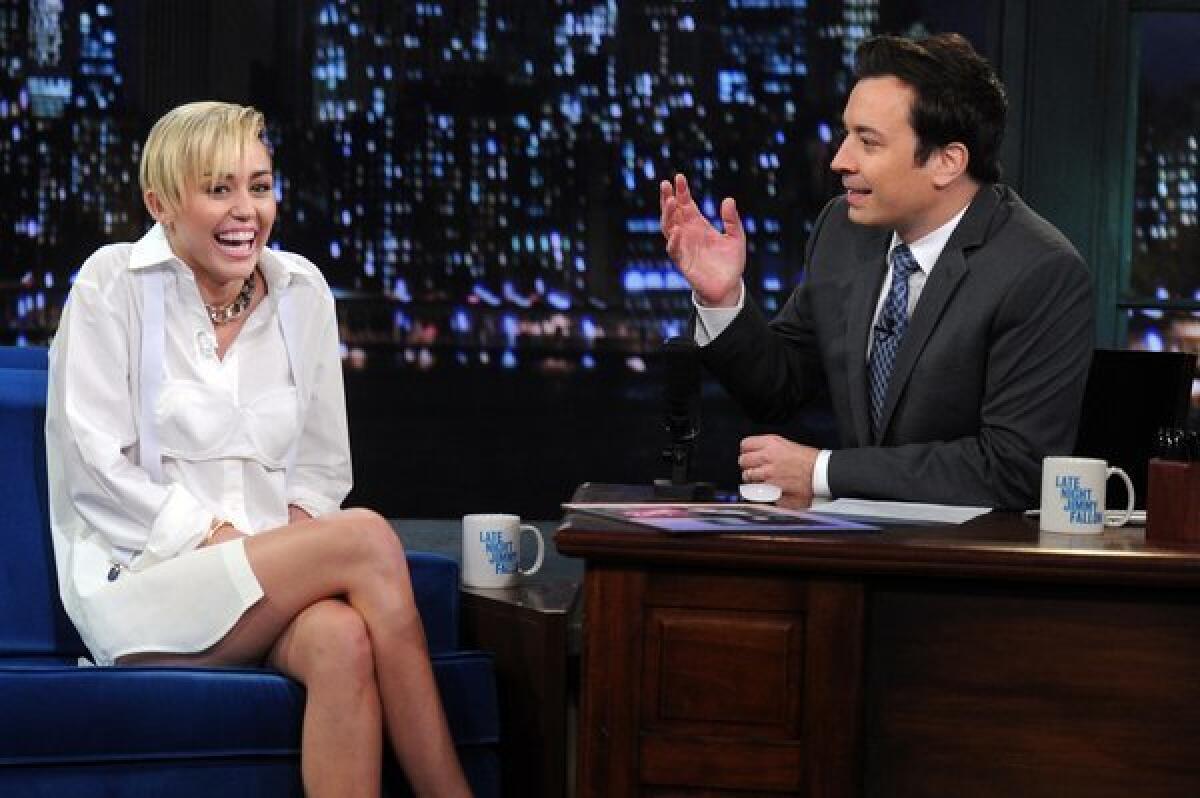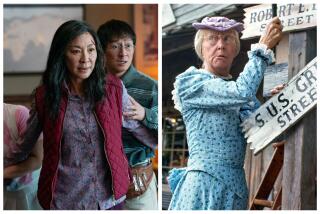Miley Cyrus syndrome: Where have all the grown-ups gone?

- Share via
It’s been 30 years since the release of “The Big Chill,” the ensemble drama about baby boomers pining for their lost youth while sprawled out on the floor of a vacation house and playing a lot of Motown music. If this reference eludes you, it’s safe to say that you can consider yourself still young. If you remember this movie at all — especially if you remember the hype around its status as a cultural touchstone — I’m afraid you’re tilting ever so slightly (or falling at a 90-degree angle) into the category “old.”
I was just 13 when “The Big Chill” was released in late September 1983, so I didn’t catch all of its nuances when I sneaked into the theater to see it. But I could tell one thing for sure: These people were grown-ups. They had vacation houses and serious careers and grown-up problems, like what to do about their fading ideals or dwindling fertility or lackluster marriages. I couldn’t imagine I would ever be that old.
Watching the movie again recently, I felt the same way. Which would be OK except that the characters in it are younger than I am now.
I bring this up not to encourage you to revisit the power suits and relentless nostalgia of Reagan-era baby boomers (and if “The Big Chill” doesn’t mess with your mind enough, you might brave the smug, shoulder-padded waters of TV’s “thirtysomething”) but to point out how much notions of adulthood have changed, especially according to the entertainment media. Namely, adulthood doesn’t exist, or at least should be avoided at all costs.
To watch even a few hours of prime-time television, or to view even a handful of widely circulated YouTube videos, is to be reminded that 40 is not just the new 30 but, in fact, the new 18. Miley Cyrus may have launched a thousand reproachful blog posts and enriched America’s vocabulary with all her twerking and jerking on the MTV Video Music Awards in August, but her equally lewd dance partner was 36-year-old Robin Thicke, whose Marvin Gaye-inspired (some would say pilfered) hit song “Blurred Lines” provided their soundtrack.
She’s 20 and acting out, albeit in an unfortunate if predictable manner. But shouldn’t he have known better?
Apparently not. Thicke’s age (and comportment) seemed to bother far fewer people, and maybe that should be no surprise, given our culture’s penchant for letting men off the hook and, moreover, its affinity for bratty grown-ups. “Breaking Bad” was heralded for its dazzling plot twists, but a significant amount of its appeal lay in its willingness to let a middle-aged family man team up with a 20-ish punk kid and effectively destroy his community with a recklessness more suited to a much younger man.
Carrie Mathison, the bipolar heroine of Showtime’s “Homeland,” is a brilliant intelligence officer who’s 34 and lives with her father and sister. Lena Dunham, creator of HBO’s “Girls,” fashioned her 24-year-old heroine, who sports tattoos of children’s book characters and eats cupcakes in the bathtub, into a kind of sex-positive 5-year-old.
Granted, in a lot of ways, 40 has been forced to be the new 30, 20, 18. Traditional signifiers of crossing into adulthood — like marriage and having kids and buying starter homes — tend to come later these days, thanks in part to sexual liberation and assisted reproductive technologies that free us to have kids much later than used to be imaginable, the Great Recession, and exorbitant housing costs and student loan debt that can keep us in the world of rentals and roommates well into our 30s and beyond.
That doesn’t make the contrast between contemporary and old-school adulthood any less striking. But it does show how confused we’ve become about what’s age-appropriate. Would Cyrus’ antics be less shocking if she were 25, or even 22? Would we have been more appalled by Thicke 30 years ago, when men of his age were expected to be not gyrating on MTV but lying around their friends’ country houses declaring that all the best music had already been made?
Almost certainly so. What’s more, if Thicke were a “Big Chill” character, he’d be waxing righteous about Motown legends rather than ripping them off. And that might have saved everyone a lot of grief.
Wow, I am old.
Twitter: @meghan_daum
More to Read
A cure for the common opinion
Get thought-provoking perspectives with our weekly newsletter.
You may occasionally receive promotional content from the Los Angeles Times.











